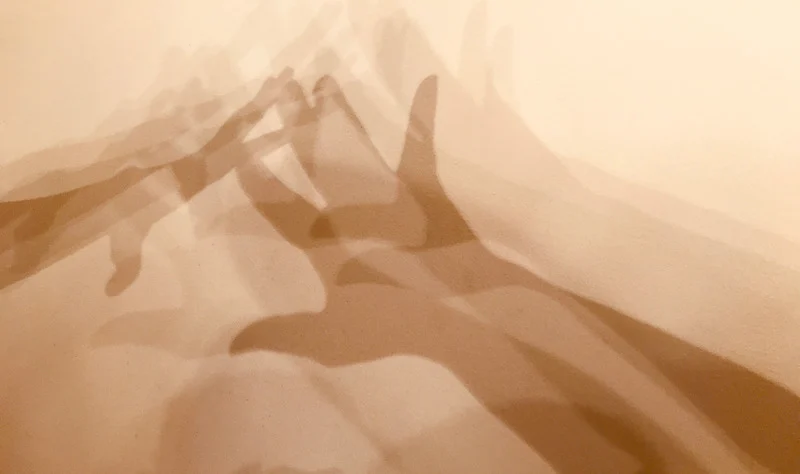
October is a time when the San Luis Valley, like communities across the nation, raises a purple ribbon in solidarity for Domestic Violence Awareness Month. While the physical scars of abuse are often tragically visible, domestic violence is an invisible epidemic that extends far beyond physical harm. It is a calculated pattern of behavior used by one person to maintain power and control over another. Its most devastating wounds are often unseen, taking the form of emotional, psychological, and financial abuse.
At SLV Behavioral Health Group, we know that recognizing these subtle red flags is the first, most courageous step toward a path of safety and healing. Whether you are concerned about a loved one or are beginning to question the health of your own relationship, understanding the signs is crucial.
What to Look for in a Loved One
It can be heartbreaking to watch a friend or family member change because of a relationship. They may seem distant, isolated, or anxious in ways they never were before. Your instinct is telling you something is wrong, and it’s important to trust it.
- Social Withdrawal and Isolation: Has your loved one stopped returning your calls or answering texts? Do they consistently make excuses to avoid social gatherings or activities they once loved? Abusers often work to sever their victim’s ties to friends and family, creating a sense of dependence and making it easier to maintain control. This isolation is a major red flag.
- Constant Criticism from Their Partner: Pay close attention to how your loved one's partner speaks to them, both in private and in front of others. Is it always negative, critical, or condescending? Abusers often disguise insults as "jokes," leaving the victim feeling confused and ashamed. Comments like "You're so sensitive, I was just kidding" are a form of emotional manipulation designed to invalidate their feelings.
- Increased Secrecy or Nervousness: You might notice your loved one seeming anxious or on edge, especially when their partner is present or calls. They may be hesitant to talk about their relationship, or they might offer vague, inconsistent answers to simple questions. This "walking on eggshells" behavior is a classic sign of someone trying to avoid triggering their abuser's anger.
- Unexplained Injuries: Any injury—no matter how minor—that has a vague or inconsistent explanation should be taken seriously. This includes bruises, sprains, or cuts. Abusers may use manipulation or threats to coerce their victim into lying about the cause of their injuries.
- Financial Control: The abuser may control all the money, demanding their partner's paycheck, or restricting access to bank accounts and credit cards. They might also prevent them from working or using transportation, making it impossible to leave or seek help.
What to Look for in Your Own Relationship
Recognizing these signs in your own life can be even more challenging because abuse often escalates gradually, beginning with behaviors that might initially feel like affection or devotion. Ask yourself these critical questions:
- Does your partner monitor your time? Do you feel compelled to check in constantly or ask permission to go somewhere? A partner who gets upset if you don’t immediately answer their calls or if you spend time with friends or family without them is displaying controlling behavior.
- Are they extremely jealous and possessive? While jealousy can feel flattering at first, in an abusive relationship, it quickly turns into accusations and a need to control your social interactions. This can manifest as stalking, constant texting, or demanding access to your phone and social media accounts.
- Do you find yourself constantly walking on eggshells? This is a powerful sign of living in fear of your partner's temper. Do you avoid certain topics or activities just to prevent an outburst? This indicates that you are living in a state of hyper-vigilance, which is a hallmark of an abusive dynamic.
- Do they belittle and criticize you? An abusive partner will chip away at your self-worth and confidence. They might call you names, mock your opinions, or make you feel worthless, foolish, or crazy. A common tactic, known as gaslighting, involves them denying things they have said or done, making you question your own memory and sanity.
The Path to Healing
Recognizing these signs is not about placing blame; it's about acknowledging a need for help. The psychological and emotional impact of living in a state of constant fear and control is profound. It can lead to deep-seated trauma, affecting your ability to trust, form healthy relationships, and believe in yourself.
You deserve to be in a relationship based on mutual respect, trust, and equality—not fear. If you recognize any of these patterns in your own life or a loved one's, know that you’re not alone and that confidential, compassionate support is available.
The SLV Behavioral Health Group is here to help you begin the healing process in a safe and supportive environment.
If you or someone you know needs help, you can reach out for confidential support:
- The National Domestic Violence Hotline: Call 1-800-799-7233 or text "START" to 88788.
- The SLV Behavioral Health Group Crisis Team: Available 24/7 at 719-589-3671.
Your safety and well-being are paramount. Please take this first step toward reclaiming your life.




